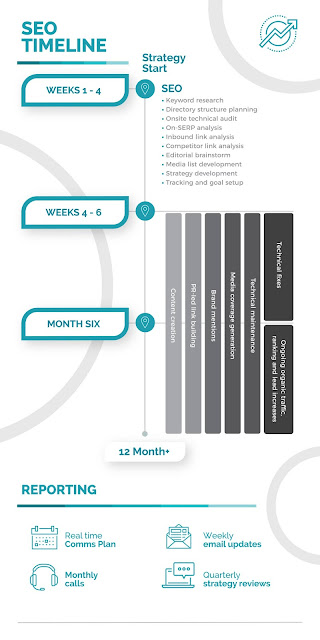How long it is take to rank my
website?
Search engine optimization is a
process that requires a lot of work, a lot of time, and a lot of patience.
Throughout this course we'll dive in to more about how to do SEO, but before
that it's important to set some expectations.
Conclusion
Seeing results with SEO usually takes from 6 months up to one full year (even for experienced SEOs).
But it can also take longer, because it depends on very many factors. Of course, it can also take less. There are very many high quality websites there that are poorly optimized for search. A small intervention can dramatically increase their traffic.
What you most know before site an SEO plan?
What’s your experience? How long
does it generally take you to rank a website for its targeted keywords? What
was your fastest one and which one took the longest? Tell us in the comments
section below!
SEO is a bit different than other marketing strategies and understanding these differences will help us to stay on course for running and measuring a successful SEO campaign. Patience is a virtue and that couldn't be more true than with SEO. Approach SEO as a long term process that builds long term value.
There's a reason that all of those ranked number one in Google tomorrow scams are called scams. It takes time to develop and execute on your strategy. Research your keywords and understand their intent. Create valuable, useful content. Attract relevant links and authority signals and resolve any technical issues with your site. It's a never ending process. There's always work to be done. SEO is not a one-time project. It's a process that you'll continue doing for the long haul.
Search engine algorithms frequently change and your SEO work needs to keep up with them. You also want to keep in mind that search engines don't necessarily interact with your website immediately. It takes them time to discover changes to your content and new links to your pages and to understand the overall structure and performance of your website. It will take them more time to put all those factors into their index to run against their algorithms in order to reassess your quality, relevance, and authority before those changes are reflected in the search results.
Being patient and true to your strategy will help you stay focused on the SEO process that you will have laid out. Another thing to expect with SEO is change within the search engines and the search results pages. It's important to realize and accept that these things are outside your control. Search engines are always trying to improve their product to help deliver results that people want and they're always trying new things. Sometimes these changes are algorithmic. Other changes are more about features or different ways of presenting different kinds of content to users in the search results pages. Search engines will keep making changes to enhance the experience for their users. It's within our best interest to work with these changes as best we can.
But, one of the biggest expectations for a successful SEO campaign is
to realize that you're really optimizing for two audiences, the search engine
but also for real human beings. It's really easy to focus in on what we think a
search engine will like about our site, but the real audience that generates
business on your website is people. While they may never find us if we don't
show up on a search engine results page, it's people that drive the bottom line
and the fortunate thing is the search engines know that. Search engines have
the ultimate goal of generating results that people will find useful and
helpful. If you build your authority and create quality content that's useful
and interesting to people and if you do it in a way that's friendly to the
computerized audience as well, the long term and consistent goal of the search
engines is to reward that.





















